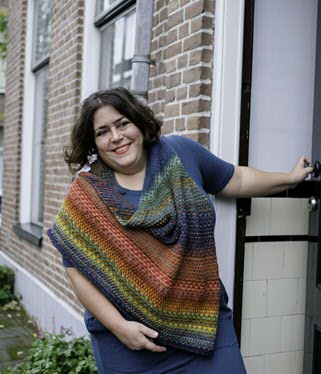Valentina Gallo on sustainable public health: It’s time for a new approach

Newly appointed associate professor at University of Groningen/Campus Fryslân, Valentina Gallo, is a Rosalind Franklin Fellow, a top international researcher on a tenure-track that will take her to a full professorship. The neurologist turned epidemiologist specialises in public health and her appointment is timely with the COVID-19 pandemic showing its effects across the board. “It’s time for a new approach to our health system. One that will make public health sustainable.”
By Tori Kelly
With Campus Fryslân specialising in sustainability on a variety of fronts, Gallo feels she’s in the right place to develop her field. “My work has an interdisciplinary approach to public health which recognises that physical health is related to mental and social wellbeing. Factors such as international governance and the quality of housing affect health as much as environmental pollutants and other risk factors. At Campus Fryslân, my work will go a step further and look at how public health can also be more sustainable, so that it is effective, affordable and relevant, and equally open to everyone and to the generations to come.”
Stress to the immune system
“A sustainable public health system needs to consider the bigger picture. It’s a philosophical approach to health and disease where health is not seen as a commodity but as an equitably accessible and sustainable right. This will be explored by taking the results of our research at a micro level and creating a bridge to expand the scope to a population, even to a global level. For instance, at a micro level we know that stress as a mental health issue can lead to physical symptoms. We are now discovering how stress can be a long-term issue caused by lifelong social circumstances such as for instance structural racism. When we take this to a macro level, we realize that there is a whole population that is more vulnerable to a virus such as COVID-19.”
System inequality
“This pandemic is actually giving us the chance to rethink the norm. The virus is a result of ill interaction between the wild world and humankind, as was zika and swine flu. So we need to develop a relationship with the environment that is sustainable, not based on exploitation. There’s also the question of social inequality and social injustice. Our public health systems need to be accessible to everyone and work towards filling the gap between health inequalities. Systems that leave people behind are by definition simply not sustainable. As a consequence of concerns about the devastating health, social and economic effects of COVID-19, a global movement was launched this summer for sustainable health equity. It draws attention to how disadvantaged and marginalized populations run a higher risk of infection and how our current health systems are not prepared to deal with a pandemic of this extent. COVID is helping us see the problems embedded in our systems and we should seize the opportunity to create a new norm.”
Involve the population
“Just what this new norm looks like should very much depend on input from the population. We need to look at how communities can participate in creating a better health system, in shaping what is needed to prevent ill health. The community needs to be able to say what their needs are in order to become healthier and society should tackle them as priorities, making the solutions accessible to everyone. It’s no good saying people should do more physical exercise if going to a gym is beyond their budget. We need to build reality into the public health message.”
Master’s programme in Sustainable Health
Gallo and her team are currently working on developing a master’s programme in Sustainable Health. “We’re using the Rosalind Franklin fellowship to work on the subject and developing the master’s programme is an important part of this. We’ll be emphasising the multidisciplinary approach and inviting local stakeholders to get involved as well as bringing in colleagues from other relevant fields. The idea is that we get to learn from each other and be inspired.” “I’m really looking forward to meeting stakeholders and colleagues. I’ve already been lucky enough to collaborate with some incredibly talented people during my career and interdisciplinarity is so important. We get the best out of academia when we work together. And we have such talent here. The more I find out about the other Rosalind Franklin Fellows, the more honoured I feel to be part of the fellowship.”
This article originally appeared in Connect winter 2020.
More news
-
15 September 2025
Successful visit to the UG by Rector of Institut Teknologi Bandung
